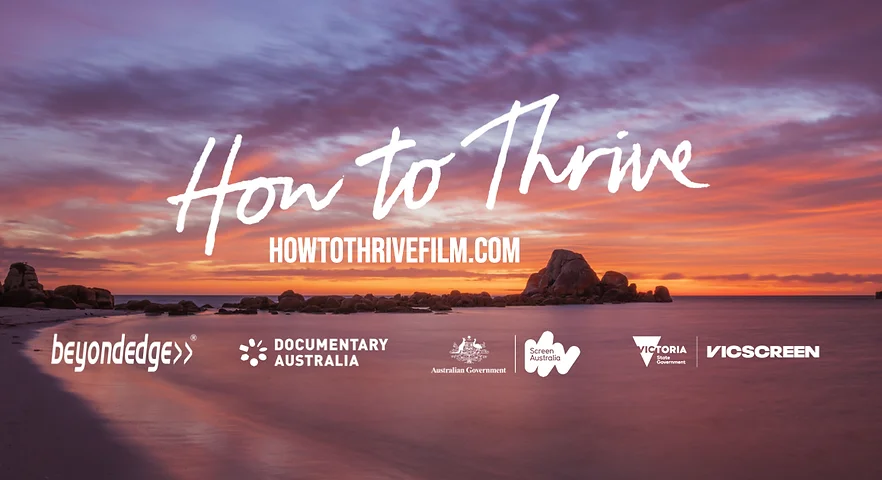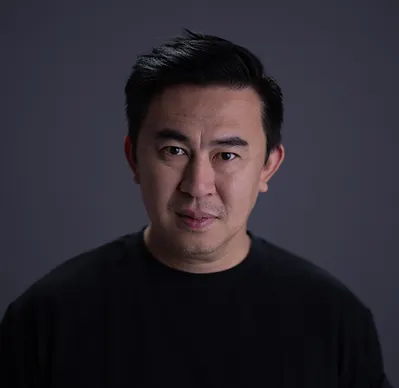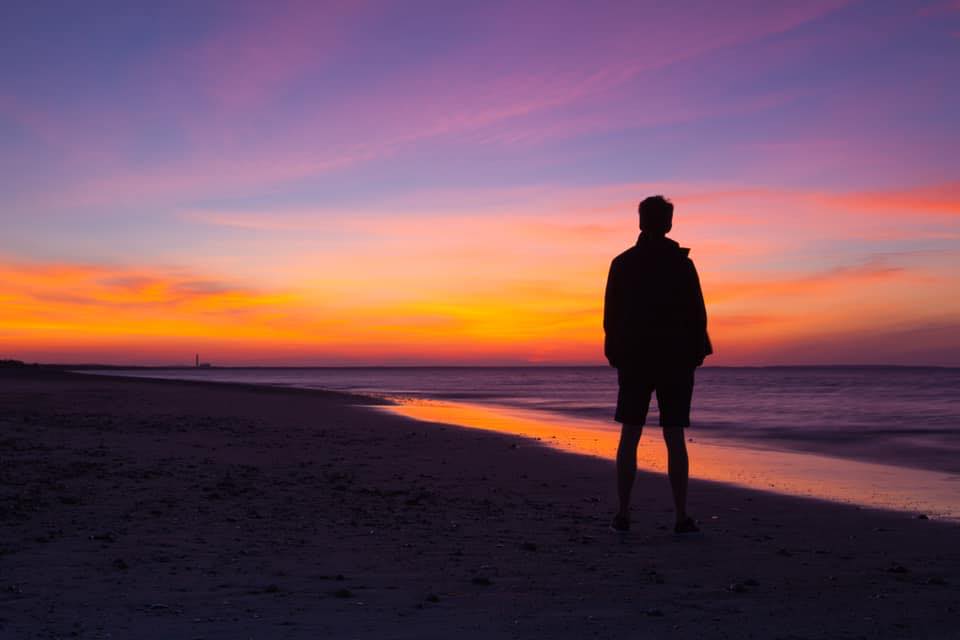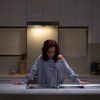The documentary How to Thrive follows positive psychotherapist Marie McLeod as she supports seven people on a journey to find happiness. At first, the notion of positive psychotherapy suggests trying to establish a ‘think happy thoughts’ mindset with individuals, but as shown throughout Duy Huynh’s film, the process is akin to assisting the participant to see the strengths and abilities that they have within themselves, and ultimately helping realise those potentials.
In this interview, taken ahead of the films release on October 6th, Duy talks about how he encountered positive psychotherapy and the work of Marie McLeod, as well as his personal journey with mental health issues.
For further background on How to Thrive visit the website here. Additionally, it’s well worth reading this article by Dr Peggy Kern about being an expert advisor on the film on The Conversation.
This interview discusses mental health practices and struggles. It is not presented as clinical or therapeutic advice. All discussions about mental health should occur with your trusted mental health support person. If this article has raised any issues for you, or if you’re concerned about someone you know, call Lifeline on 13 11 14.
Let’s go back to the beginning of when you came to the world of positive psychotherapy and encountered Marie McLeod, how did that journey start for you as a filmmaker?
Duy Huynh: I’m part of the United World colleges movement in Australia. I was an Aussie scholar to this International School from 93-95, where Australia sends one representative each year. And now as an alumni, I’m on the board for selecting kids to go over to this these schools on $100,000 scholarships. And I was tasked by the board to look at this rising mental health issue because we realised that the young people that we were sending across are increasingly having more issues around their mental health, and to think about doing something about it, not just for Australia, but looking at a global approach to how we can solve or at least chip away at some of these problems. In our experience in terms of working with teaching programmes, Beyondedge does teaching programmes and corporates and what’s made us successful on that side of the business is the idea that we’ve always looked at the problem from both sides. We’ve always thought, “Well, if there’s a problem here, and something that people shouldn’t do, what are some of the things that people should do?” In the same way that for far too long we’ve asked questions in psychology about what can go wrong with us as humans and we’ve forgotten to ask the other side of that question, which is, what are some of the things that can go right with us as people?
And so through doing that, I sort of stumbled across positive psychology (pos psych) and took a very deep dive into all of the research that’s currently being done. And realising that this research that I was doing is much bigger than just supporting these scholars that are going away to United World colleges. This was about potentially an approach that a lot more of us should know about. And the frustration really of thinking, “all this incredible work has been done and it’s just underutilised.” How do we actually talk about some of the sciences in a way that’s going to be interesting? If you make a film about the science, no one is going to watch it, no one cares about data and the stats of what creates meaning and purpose.
I really needed a way to anchor the science into story. When I was doing my research, I bumped into Marie. She was sitting literally on a table next to me. It was a chance meeting. And she said, “If you’re interested in looking at how positive psych is being applied clinically, come to Headspace. I’m doing a programme.” And I found out that Marie was teaching this programme with young people at the time. In six weeks, she was able to transform these young people – many of [who] were on suicide watch, so the very extreme cases of mental ill health – with positive psychology [and was] able to really transform their lives to the point that when I saw them at the end, they used a word that you very rarely hear. And that word was hope. They felt like through the programme, they hadn’t had hope, and many of them felt moving, but they’ve moved up the mental health continuum into a space of thriving, which I thought was extraordinary.
At the same time, Headspace was cutting back on that programme, because it didn’t deal with the deficit and the disorder, it provided an extra layer of well-being on top. Our funding models prioritise the deficit and disorder, when actually a range of different options need to be available to make it work. And so it added to more fuel to the fire to say, “Hey, some more work needs to be done in this area. I’ve got some skills in the filmmaking world, can I make a contribution here?” And that’s what happened. Luckily, Marie was onboard to help as well. That’s what we’ve been spending the last three years doing. We thought, “What if we [had] a bunch of people and gave them the approaches that [Marie has] been teaching, and what we’ve been learning from the science, would it make a difference?” And that’s the premise of the film.

How did you make the interview setting feel safe given the subjects are telling their stories and being vulnerable on screen?
DH: That was important, because the science is one thing, but the group dynamic is also really important. The group dynamic is important for us because psychology is a one-on-one experience in psychiatry, and the demand is so huge. Is there a way to create a group dynamic which will be really helpful? On the very first night the camera crew, lighting guys, soundies, we [all] dropped our tools and sat around in a circle and talked about what our connection to the project was and why it was important to us. [We talked about] what our own experiences of mental health issues have been and what we want to see from this project. It brought everybody in on an even playing field. After that night we no longer saw each other as our roles, but as humans. In many cases, humans that are flawed and in struggle. And that none of us were perfect. Something really shifted after that night where there was a lot of trust. It was like a little community that we built around the project and that made it much more psychologically safe.
The other thing that was really important was that we told the participants on the very first night that their story is their story. And we are just the conduits to them telling their story. I made the deal with them that they can say whatever they want on camera, and at the end of the day whatever they don’t want in the final cut gets taken out. That’s important not just for duty of care and looking after the participants but also from the point of view of wanting authenticity, and you really want people to be able to speak without feeling like they need to edit what they’re saying because the cameras are watching. I think that’s why we were able to get really profoundly intimate moments with these participants.
Was there a personal connection to wanting to tell this story for you that you needed to explore on screen?
DH: I’ve always had this curiosity about what makes us happy and what makes us well, and part of that was because I am a first-generation refugee. As a five-year-old, I was lifted into a little fishing trawler, and it set out into the open ocean, and we were attacked by a Malaysian looters and the ship was broken apart and essentially we were left for dead. I still recall being dragged out of the water kind of drowning and being locked up into refugee camps.
But I was one of the lucky ones, because I went through that experience and didn’t have the PTSD, the grief, and the depression that many of my contemporaries had. And I’d always wondered what separates those of us who can undergo adversity and come through the other side relatively unscathed? And what is it that has created the issues for other people? If we can bottle what it is that creates this resilience and this ability to bounce back from obstacles, that would be really worthwhile unpacking and understanding. It’s been a lifelong question around what makes us well and stumbling upon this later in life helped me to really put some of those pieces together around what makes us well. So it was a personal journey for me to look at this subject matter, and it’s helped me to uncover some of my own questions along the way.
Was there a moment when it came to discovering positive psych that you went ‘I understand it now’?
DH: I wonder if I could really pin it down on to a particular moment. For me positive psych is a range of interventions that are about teaching us how human beings work. Essentially, it’s like an instruction book on what are the good aspects of being a human being through a purely secular way, but also a very scientific way. All of these approaches have been studied really, really well. For me, it’s almost like you’ve got to do a whole range of these approaches and one of those things will unlock things for you. We’ve seen that happen with the participants.
That’s a tough question to pin down where it is that that unlocking moment happened for me. I think that reading about the importance of hope and understanding that hope is not just a fluffy thing, like ‘Hey, let’s hope for the future.’ Hope is a solid grounding thing around what do you want? And understanding that whenever you hear yourself saying “I can’t” and “I don’t”, instead asking yourself what do you want? That was the biggest learning [aspect] for me in terms of creating a situation where those obstacles shift my [mindset] and empower me further. When you’re making film it’s a constant obstacle, right? And as we go through life, there’s constant obstacles. We can’t stop the obstacles. What we can do is learn better how to respond to adversity and things that go wrong and things that are that stop us from progressing. Learning the power of hope was what made the biggest difference; I guess that applies in terms of filmmaking, but also in my personal life.
How did you manage to film during the pandemic?
DH: It’s funny, you can have all the best plans. And everything just turns to shit at some point. You think, “Oh, God, how’s this going to ever come together as a film?” And that’s almost 90% of the production process. Towards the very end things get pieced together. I think what was really helpful in the early stages for us was having five things that were really important that we achieved. ‘This is our objective, this is our product mission.’ And regardless of what happens, we’ll keep coming back to check in with that mission to make sure that we’re still aligned. That’s been the only commonality.

We began shooting in January 2020. We were out on the retreat with no mobile phone reception, no access to the outside. And then the weekend after when we were coming back, supermarket shelves were empty. We had just started opening these people up in terms of the connection and [had just] started to begin the intervention. And they’ve come back to an apocalypse. It was taking something that was already difficult and adding a backpack full of bricks on top of that. You’ve just got to pivot and adapt, [which meant] using technology and continuing to film because we couldn’t stop now. We couldn’t say, “Okay, can you hang on for three to six months while this COVID things happening?”
I think in retrospect we got some really beautiful, profound moments that we wouldn’t have had if there was five-ten crew in the room. All we had after COVID had moved through was a little bit of [the] retreat and a whole bunch of Zoom footage. And I had to make a film out of that, which was a real challenge, really thinking about how to create a cinematic experience through this. We’d actually done all of the interventions before we commenced principal photography, which is an unusual thing.
At the end of the process, we looked back at where they were at the time [filming started] and we brainstormed “How do we visually talk about what it is to be in struggle and what it is to have depression?” Kate said to me, “Depression is like being in a vat of murky liquid where you don’t know which way is up and which ways down and the harder you swim, the deeper you fall into it.” The opening sequence to the film is her in this vat of fluid trying to fight her way out. And it was a collaboration. They art directed their visual journeys. Han talked about it like being stuck in a dark forest with nowhere to run. And Mel’s journey of OCD what that looked and felt like in her head was visualised for the audience. The other issue in telling stories that are essentially shifts in people’s minds, it’s hard to show progress, so the visual analogies that we set up to talk about what it feels like to be in struggle we added little moments where change has occurred, and the visual analogies help the audience to understand that. “He’s started to find a path out of the dark forest,” for example, and we could show the audience the shifts that people were making throughout the journey.
When it comes to presenting stories about mental health, there is often a myriad of contentious issues that can arise during discussions. How do you maintain having a fair and balanced approach to documenting a story like this, while also maintaining the fidelity of what you’re documenting?
DH: First and foremost is duty of care. We’ve got to make sure that our people looked after. The deal with the participants is that they must maintain the mental health protocols that they’re currently on. Many of them were already seeing a therapist or a psychologist or psychiatrist. And if they didn’t have one, they needed to have one. That was the most important thing. The production also supported them with access to a therapist whenever they needed. And so that was also available all the way throughout for the crew, because they are there watching everything unfold and then can vicariously be traumatised through listening to other people’s stories. It was really important that they all had an opportunity to talk to somebody if they needed. And making sure that the participants understood that we were there facilitating them telling their story. They’re in control of their own stories.
In terms of the measurement, after the first night of sharing as a group and understanding a little bit more about not just the participants but also the crew, where everybody struggles were, it was hard to stay objective as a filmmaker to all these people who you deeply care about. It was important that we had an independent group that was looking at a measurement. Melbourne University was on board, and Dr. Peggy Kerns – who is one of the leading researchers on measuring wellbeing – measured before, before, during and then 18 months after the process, so that there was a level of independence. It wasn’t just us creating a story around how great the experience has been.
For me, it was challenging to just let go of caring about the outcome. Obviously we care that these people were getting well. There were times when they didn’t want to participate. There were times when they didn’t fully do the work. We’ve got a responsibility to them that we tell their story fairly and not to throw them under the bus. Being aware that we, as a camera crew, are intervening in a way that hopefully is not counterproductive to the process. And that’s why we had psychologists as a part of those sessions as well. Chris, our psychologist on the production team, was a part of most of those filming sessions. His comment to me after the sessions was that interviewing participants feels a little bit like psychotherapy in a lot of ways because you’re helping them to debrief how they’re thinking about the filming process. I got the gist that he said, that it was a positive influence on the intervention and not distracting. We’re not making a reality TV show, we’re not there to create drama or build drama into the process. We’re literally just there to document what’s going on. And also being aware that we have an influence on how things unfold meant that we were careful that what we were doing was documenting, and not there providing therapy ourselves.
What it means to be an Australian filmmaker working today. And especially with your perspective. You know what that journey to being a filmmaker in Australia has been like for you?
DH: I’m still not sure I’m allowed to call myself a filmmaker.
You’ve made a film, you’re definitely a filmmaker.
DH: It’s a particularly tougher job being a filmmaker in Australia because you have to wear a lot of different hats. You have to be a really good problem solver. What’s been helpful for us is that we’ve had that experience in business, which we’ll bring into this world, which has been really helpful for unpacking some of the adversity that has occurred during the filming process.
I’ve always seen Australia as a really egalitarian society. For somebody like me who has come from literally nothing, my family literally arrived in Australia with the clothes on their backs and a suitcase full of trauma, to be able to be supported to do this by Screen Australia and Vic Screen who really took a punt on me and us as a young, emerging team, and the fact that they’re very focused on diversity and telling diverse stories, and making sure that a range of different filmmakers get an opportunity, I really appreciate that. And through to our philanthropists have also taken a punt on an issue that maybe is not as uncontroversial as people think. I think positive psychology is still controversial in some circles, because of the fact that it’s not focused on deficit and disorder.
It is a challenging thing to be filmmaking in Australia, particularly from a diverse background. But I feel that the people who are making decisions on which projects are being funded are really listening to the community and giving diverse voices a go, which is a really lovely thing at the moment. Our mission is not change or disrupt the industry but to add to it. I think if we give people more options and more ways of seeking treatment, it’s only going to help.



